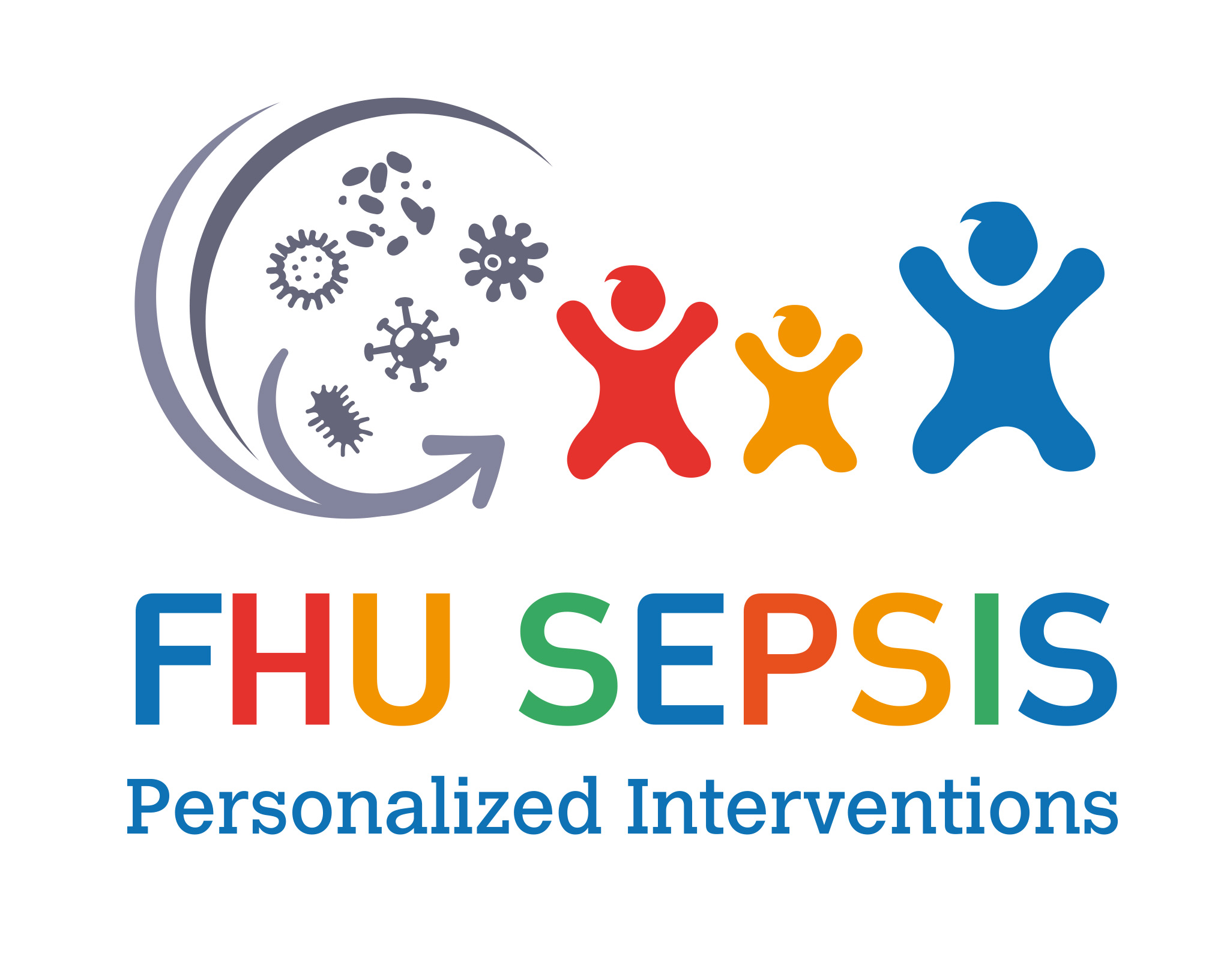You are here : FHU-SEPSISENOBJECTIVES & PROJECTSRHU RECORDSRoad Map
- Partager cette page :
- PDF version
Road Map
The RHU RECORDS project is organized along 6 Work Packages (WP) aimed at identifying and evaluating biomarkers of sensitivity/resistance to corticosteroids and at industrializing POC tests.
WP 1 – Clinical trial and platform trial
Leader: Emmanuelle Mercier (Inserm)
This WP aims at setting up the RECORDS adaptive trial and creating the first platform trial on sepsis in Europe. This WP will be in charge of preparing the APROCCHSS cohort for the WP5 that will use Artificial Intelligence (AI) methods to define a phenotypic signature of the resistance/sensitivity to corticosteroids.
The adaptive clinical trial uses a Bayesian design. Each strata testing the effect of a biomarker to predict the sensitivity to corticosteroids could be interrupted if it is shown to be inefficient. Results from other WP could be implemented in the adaptive trial by adding new strata. The preparation and promotion of this adaptive clinical trial will be under the responsibility of the AP-HP. The CRICS-TRIGERSEP network (Inserm) will build the European platform trial that will have the same Bayesian design.
WP 2 – Clinical and biological data warehouse
Leaders: Christel Daniel and Anne-Laure Roux (AP-HP)
WP2 will set up two warehouses: one warehouse for digital data (clinical, omic, biological data) and one warehouse for biological samples (blood, urine…). These warehouses are vital for the functioning of the adaptive trial and the seamless interactions between WP. They will allow exploration of new biomarkers, development of POC tests and connection with clinical and biological big data.
WP 3 – Specific approaches to identify patients eligible for corticotherapy
Leader: Véronique Godot (UPEC & Inserm)
This WP aims to define thresholds of resistance to corticosteroids for different biomarkers of interest: endocan, GILZ, and other morphometric parameters of leucocytes. Two additional steps are part of this WP: the investigation of the role of SEGRAMS (Selective Glucocorticoid Receptor Agonists and Modulators) in GILZ and DUSP-1 expression and the impact of mutations on the GR and MR genes.
WP 4 – Multi-omic analysis of the response to corticosteroids in sepsis
Leaders: Henri-Jean Garchon & Stanislas Grassin-Delyle (UVSQ, CEA, Inserm)
WP4 focuses on the omic analysis. This approach includes genomic, trancriptomic and metabolomic. The goal is to correlate genes and their expression to the responses of patients to corticotherapy or correlate these responses to the products of the metabolome, such as exhaled breath. Each omic signature will be tested in the adaptive clinical trial and may ultimately lead to the subsequent development of a POC test.
WP 5 – Health data analysis
Leaders: Karine Zeitouni & Zaineb Chelly-Dagdia (UVSQ)
Based on the APROCCHSS cohort, a first clinical signature will be defined using machine learning methods. This signature will be tested in the adaptive clinical trial. The second aim of this WP is to integrate the data from the observational and interventional periods of the RECORDS clinical trial to find better parameters and biomarkers defining the sensitivity and resistance to corticosteroids.
Finally, transverse work will help the other WP to select better variables of interest (i.e. refining the list of genes of interest found in WP4).
WP 6 – Point Of Care
Leader: Martin Rottman (AP-HP, Inserm, UVSQ)
This WP will develop POC tests easily usable at the bedside to measure biomarkers found in other WP. In collaboration with industrials partners, POC tests for endocan, GILZ, DUSP-1 and transcriptomics tests will be developed.
RECORDS - Project funded by the Programme d’Investissements d’Avenir (PIA) - ANR-18-RHUS-0004  |

